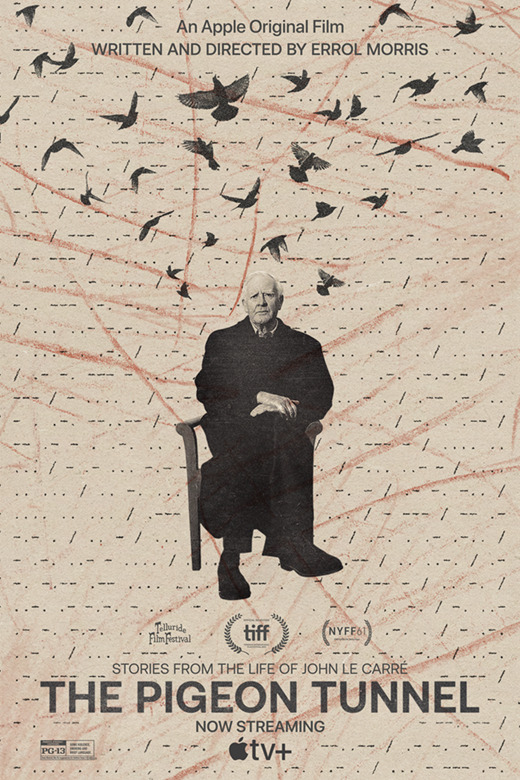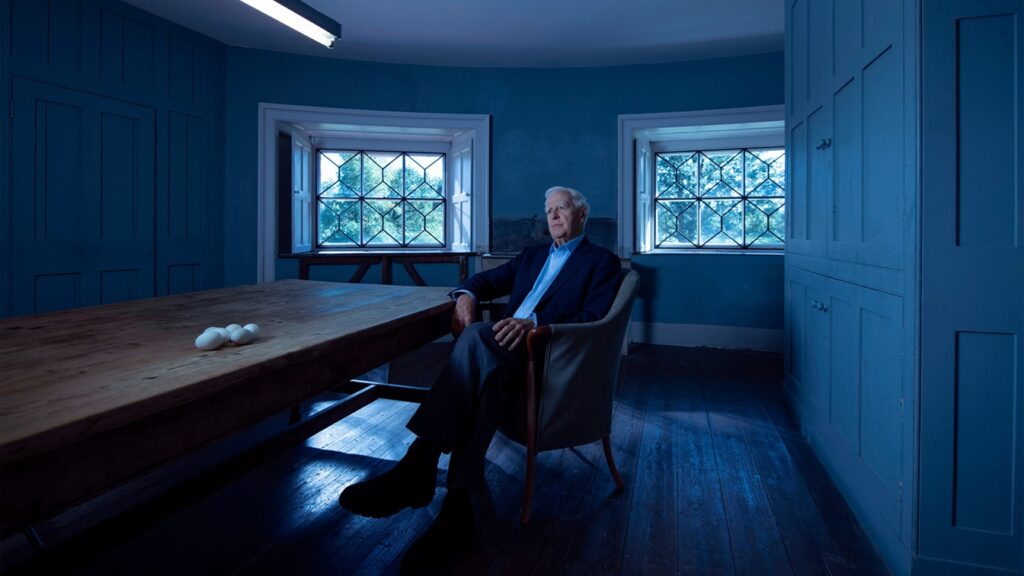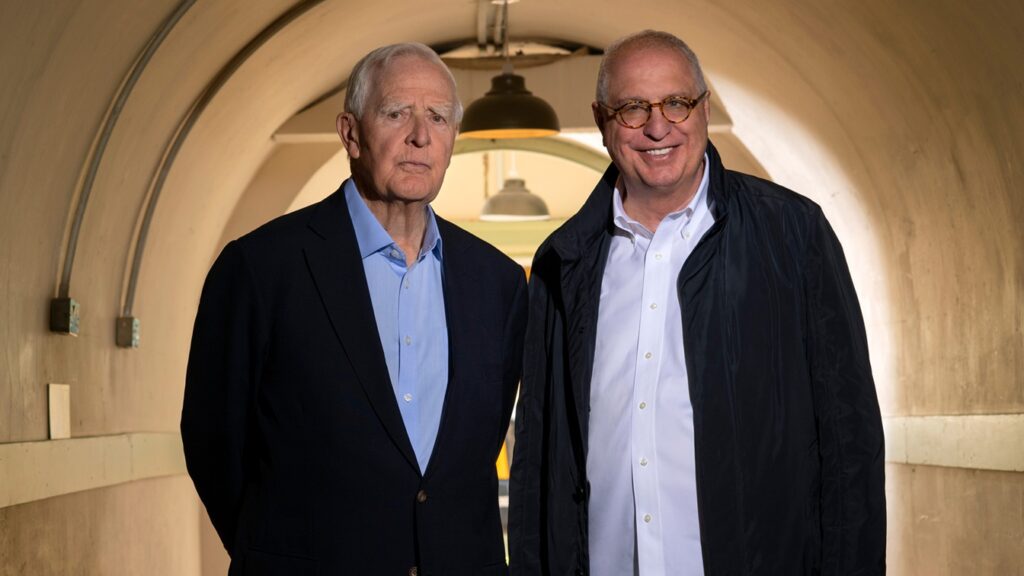
It’s often said that people write what they know. Even in a work of fiction, characters and storylines will be inspired by actual figures and events in an author’s life. There are those who deny any connection with reality and others who embrace what readers suspect, allowing it to add to the depth of their work as extrapolations are made about influences and meaning. One fascinating example of this is an actual spy who became one of the world’s most celebrated authors, John le Carré, who reflects thoroughly on the interlaced nature of his life and career in Errol Morris’ The Pigeon Tunnel.
For the entirety of this 92-minute documentary, le Carré, whose real name is David Cornwell, sits with Morris to discuss what he’s been through and how that played into the books he wrote. Their conversations are punctuated and enhanced by footage from film and television adaptations of Cornwell’s books and dramatizations of moments from his childhood. Rather than have numerous other authors, intellectuals, or government officials come to comment on Cornwell’s legacy or to ask him questions, this is simply a chess match between two incredibly interesting figures, whose questions and answers speak volumes.

Morris is an established documentarian, well known for films like The Fog of War and The Thin Blue Line. He has a particular style to him that works very well in this context, enabling him to pry into Cornwell’s brain without seeming insensitive or incendiary. The now seventy-five-year-old is seventeen years younger than Cornwell, who passed away in 2020 at the age of eighty-nine, and the two seem to have an understanding of each other that lends itself productively to this format and makes Cornwell feel comfortable opening up because the rules of the game have been firmly and fairly established.
Devotees of Cornwell’s book will surely have an enhanced appreciation for this lengthy interview, billed as his “final and most candid.” Cornwell, who worked for MI5 and MI6 over the course of his career, remains the focus rather than the material he wrote, explaining how he was involved in intelligence and how that played a major part in his entire life. He also digs into the complicated relationship he had with his father, which in turn manifested itself in the characters of one of his books.

John le Carré (David Cornwell) and Errol Morris behind-the-scenes of “The Pigeon Tunnel,” now streaming on Apple TV+.
The incisive structure of this feels will appeal to many enthusiastic consumers of documentary, who will enjoy the opportunity to get an unfiltered look into Cornwell’s brain as he, near the end of his life, feels comfortable sharing more than he might about both his spy work and his career as an author than he would have much earlier on when he would have felt there was more at stake. In turn, it may also be difficult to attach for those unfamiliar with Cornwell’s writing since this is not a nonfiction narrative that brings in multiple perspectives or dramatizes all that much of what it shows, focused instead of being a controlled conversation piece where the words say just as much as what audiences see on screen.
Those seeking answers about what it means to be a spy will find intriguing and complicated sentiments in this film, as Cornwell recalls how he betrayed someone who thought he was a friend because, in his opinion, that friend was engaged in activities against the government which needed to be exposed. Cornwell doesn’t imply that he or any government agency is a high moral authority, and instead reckons with what he’s done in a very frank deep dive that could only be delivered by the unique and deliberate Morris.
Grade: B
Check out more of Abe Friedtanzer’s articles.
The Pigeon Tunnel is now streaming on Apple TV+.

